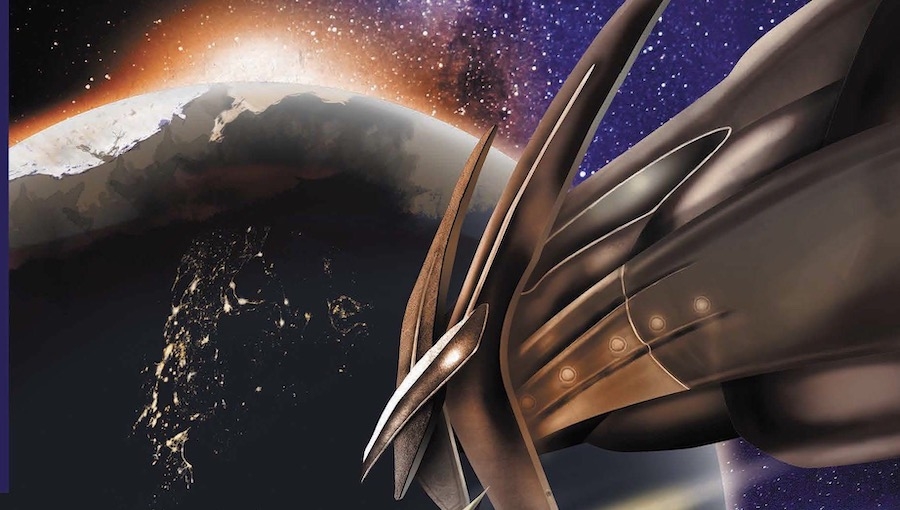If Ungent and Shol thought they’d be off the hook after saving the universe from the Quishik threat probability, the multiple threads of time and space have other plans. The Quishik’s prison is hardly infallible (especially when dealing with psychic beings that can harvest brain power/life), there are others who need Ungent’s sage advice, and Shol is trying to endure adolescence trapped on a space craft with a middle-age crustacean and an AI. The mysterious Ootray continue to hold the key to . . . well, everything, but they don’t seem eager to be found, even though they’re responsible for the biggest threat to all life as the cast knows it. All sentient beings need to band together to face the harsh truth that the Quishiks will be back, but can they overcome personal feelings and deep-seated beliefs to make a final decision?
Mark Laporta’s Entropy Refraction picks up shortly after the events in book one, Probability Shadow, and continues the complex storytelling of a universe on the brink of destruction. It’s not meant to be a jumping-on point for new readers (Please start with Probability Shadow; everything will make so much more sense, and the characters’ motivations work much better!), and some characters present as downright confusing without their backstories. Additionally, the primary theme about responsibility toward one individual or group versus the greater good links directly to the events in book one.
A lot of Laporta’s world building was established in Probability Shadow, but the challenge of a sweeping epic is keeping track of each pertinent detail. He adds a few new species (bird-like beings!) with their own moral compasses and lays some foundations for conflict that might be important in later novels. Many major players from book one continue to hold key roles, and a few decisions and choices broke my heart since I had bonded with the cast.
I didn’t enjoy Entropy Refraction as much as Probability Shadow, but it touches upon darker themes. Additionally, as I read the book near the end of 2020, many of the fictional challenges felt more realistic than they might have in less complicated times. This is not an easy read that you can dip in and out of casually and follow all the threads; it is a slow, deliberate read where you step away to mull over the plot before re-immersing yourself. I don’t want to imply that the story is a depressing slog; it just requires introspection and self-examination to help digest.
4 Impulse Purchases from Very Odd Store Fronts out of 5
Creative Team: Mark Laporta
Publisher: Chickadee Prince Books
Click here to purchase.

